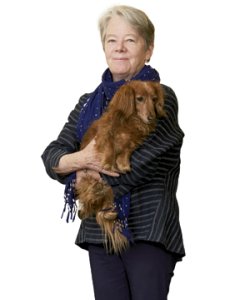Small Press Points: Cooper Dillon Books

The ten-year-old press publishes full-length poetry collections and chapbooks dedicated to the “values that make poetry timeless.”
Jump to navigation Skip to content

The ten-year-old press publishes full-length poetry collections and chapbooks dedicated to the “values that make poetry timeless.”

Alice Quinn on her eighteen years as the executive director of the Poetry Society of America.
“It’s hard to imagine the pain of another without being swallowed by it.” Dave Harris reads “Preparing a Meal” from his debut poetry collection, Patricide, which was published by Button Poetry in May.
A recent United Nations report found that nearly one million species are at risk of extinction in the not-so-distant future, in large part due to human overconsumption of land and resources. This week, write a poem to honor one of these endangered species—perhaps the South China tiger, the Bornean orangutan, or the Hawksbill sea turtle. Frame your dedication as a love poem, an epistolary poem, a note of apology, or an elegy. What would you say to these creatures if they could understand you? For inspiration, peruse these animal-themed poems from the Academy of American Poets archives.
“Still under construction, the kiss as thunderclouds in summer sky that sometimes means lightning, as the smell of after rain.” In this Poetry.LA video, Keegan Lester reads from his debut collection, this shouldn't be beautiful but it was & it was all i had so i drew it (Slope Editions, 2017), and speaks with Lisa Grove about nostalgia, Bob Dylan, and the themes and influences behind his work.
Created by former Disney Imagineer David Hanson, Sophia is one of the world’s most expressive robots. She can mirror people’s postures, discern emotions from tone and expression, and react with her own realistic facial movements. National Geographic photographer Giulio Di Sturco says about their first meeting, “She started to look at me and smile, and I looked at her, and at that point for me, she was not human, but there was kind of a connection.” Write a poem about an imagined encounter with Sophia. How do you envision an emotional connection with a lifelike robot? What kind of language would you use?